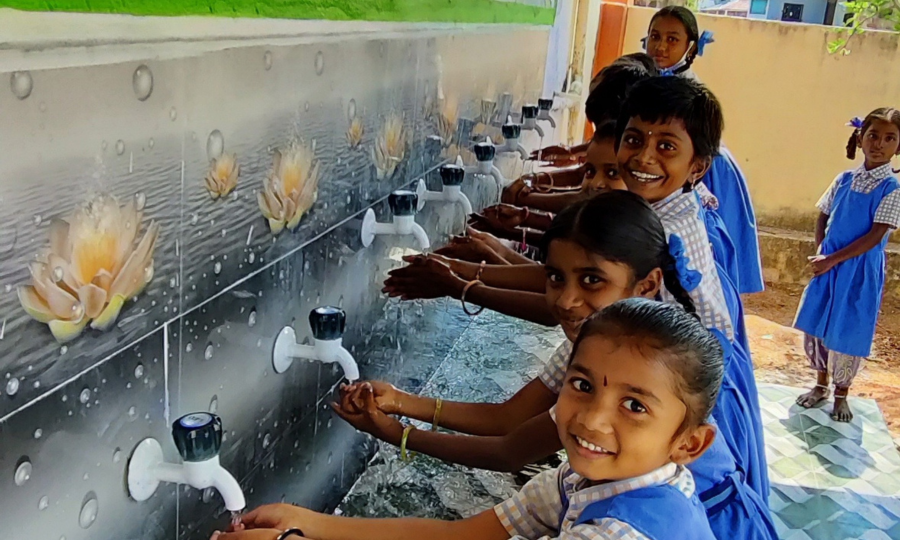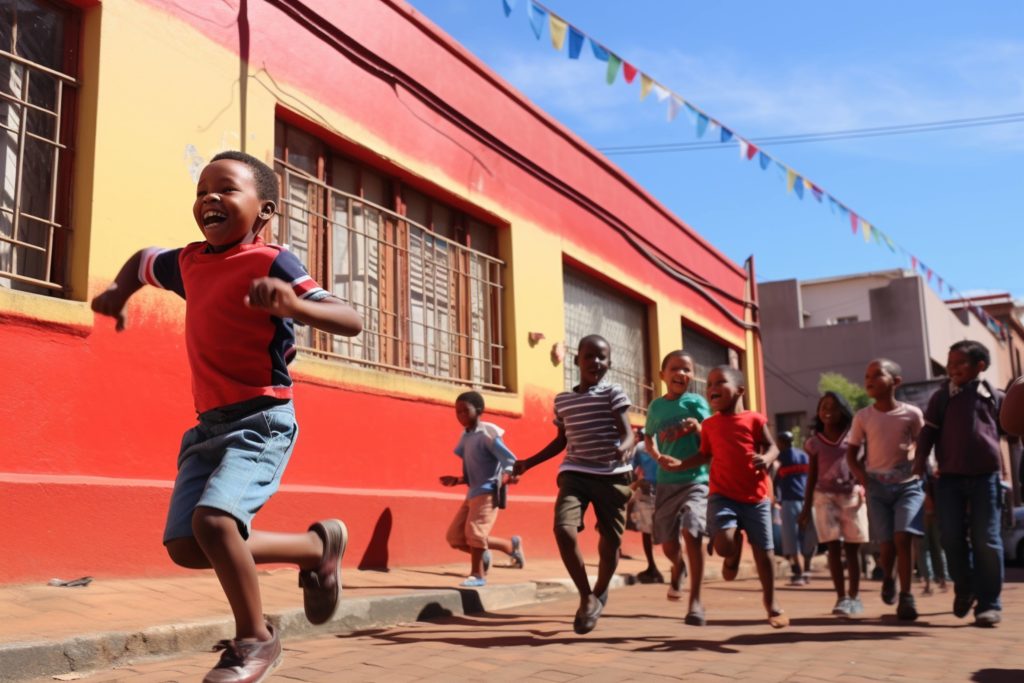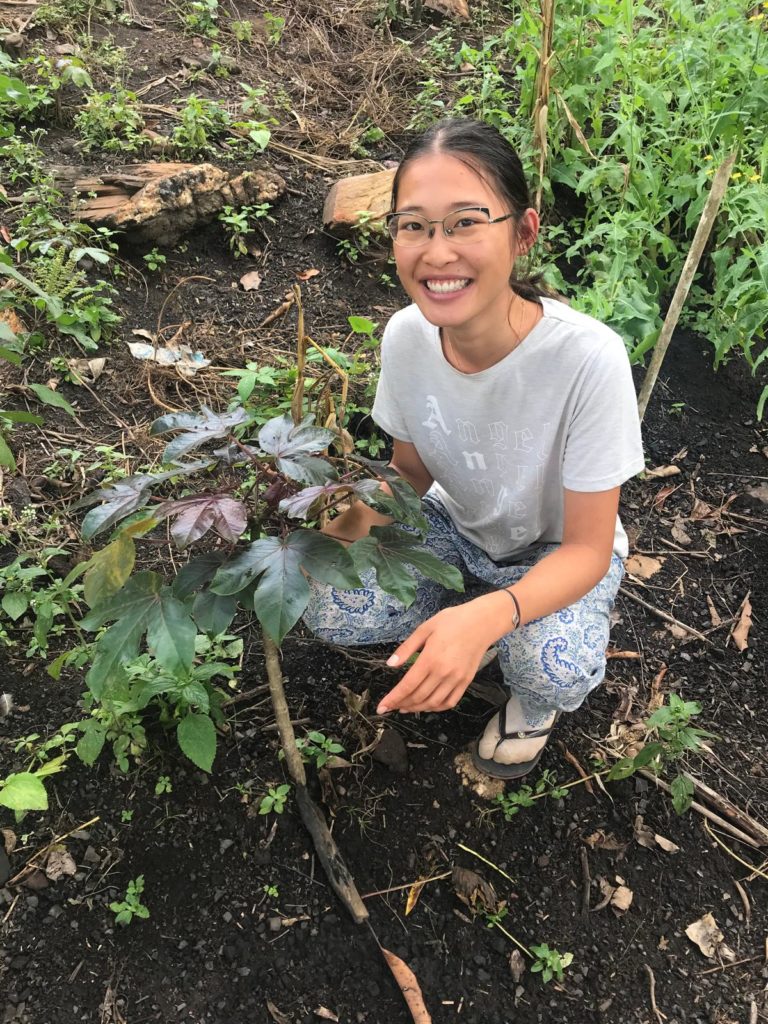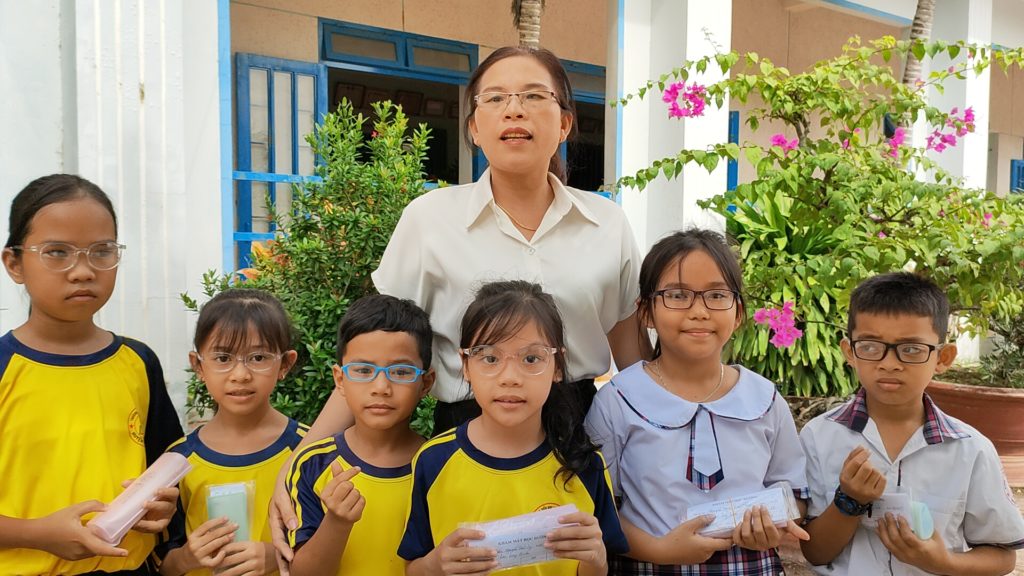
If education is the key to a fairer, more stable and more cohesive future, then pupils must be able to continue their schooling in conditions that are at least acceptable and safe. Where this is not the case, FdnF works with its local partners to find the best solutions for long-term impact.
In India, almost one person in two has no access to drinking water. Every year, around two million people – mainly children – die from drinking contaminated water.
That’s why FdnF supports the initiative developed by a women’s collective (W.D.W.S) to install water purification systems directly in schools to guarantee the health and hygiene of pupils. Each child is invited, depending on his or her strength, to go home with a container filled with drinking water for his or her family, further extending the impact of the initiative.
Our partner has identified 27 schools in which these facilities can be built, along with sustainable sanitation practices.
Thanks to the generosity of a landlord, two pumps are already being installed. In addition, students from the University of Geneva have succeeded in raising the necessary funds to equip a third school.
We’re looking forward to continuing this wonderful adventure.
Education has always been at the heart of FdnF’s commitment. As one of the best ways to fight poverty, strengthen equality of opportunity and build a more stable and just future, we believe deeply in its transformative power.
In 2025, FdnF is relaunching its school construction projects after the pause imposed by the Covid-19 pandemic. We are supporting the creation of a pre-school center in a remote region of southern Haiti, for children aged 2 to 4. The aim is to provide them with a safe, stimulating and high-quality learning environment from an early age.
This center will complement the drive to promote education in the Jacmel Valley, and its Ecole Communautaire de Geffray, also built by our local partner OJUCAH.
Aligned with Sustainable Development Goals (SDG) 1 and 4 – the fight against poverty and access to quality education – this project illustrates our determination to take concrete action for the most vulnerable children, by opening the doors to a better future.


FdnF places the preservation of biodiversity and respect for local knowledge at the heart of its actions. The Perma-Jardins du Togo (PERJAT) project, which welcomes students from the University of Lausanne every year, is part of this approach. The aim: to contribute to the knowledge, protection and reproduction of medicinal plants, essential resources for the health of populations.
In West Africa, around 85% of the population rely on traditional plant-based medicine. This is particularly the case among the Ewe community in the remote region of Kouma, a direct beneficiary of the project. Among the species cultivated : Artemisia afra against malaria, but also plants used to treat coughs, diarrhea, anemia, hypertension, cirrhosis and many other common ailments.
Faced with the increasing scarcity of certain species, seeds have been ethically collected from the primary forest, to be reproduced and safeguarded on the NGO’s land. This work of conservation and transmission of knowledge is essential for the health of local communities.
FdnF is proud to be part of this meaningful initiative, which links health, the environment and sustainable development. A new, more ambitious phase of the project is planned for this year. It will also include the planting of medicinal trees, to further strengthen PERJAT’s positive impact over the long term.
Nearly 20 million children under the age of 15 worldwide suffer from uncorrected visual impairment. Poor vision profoundly affects a child’s ability to learn, interact and develop to the full.
Aware of this challenge, FdnF has launched a large-scale vision screening program in Vietnam and Cambodia. Thanks to the support of numerous partners, Phase I of the project examined the eyesight of over 50,000 schoolchildren in three districts in southern Vietnam and one district in Cambodia.
Among them, more than 2,000 children aged 7 and over benefited from in-depth examinations following the detection of overlooked visual disorders. A total of 1,439 pairs of glasses were distributed, paving the way for greater academic success, self-confidence and new prospects for these pupils from disadvantaged backgrounds.
Given the positive impact of this initiative, a phase II is planned for 2025, with the ambition of extending the program to other communes and districts in Vietnam and Cambodia.
This project is fully in line with the Sustainable Development Goals set by the UN for 2030, in particular:
Through this action, FdnF reaffirms its commitment to more inclusive education, health accessible to all and concrete equal opportunities – so that every child can learn, succeed… and dream bigger.


In Busia County, Kenya, rural communities are facing the direct consequences of deforestation, soil degradation and biodiversity erosion. The invasion of striga, a parasitic plant that destroys maize and sorghum crops, is seriously compromising local food security. These agricultural imbalances also reveal a profound disruption of the ecosystem and growing pollution that is affecting the quality of life of the inhabitants.
In response to this emergency, FdnF supported the Busia Eco-Action pilot project, in partnership with local and international players. This project tested a natural and sustainable solution: the push-pull method, an organic farming technique based on the use of repellent plants to control pests.
A total of 35 training workshops were held with 412 farmers, each of whom cultivated a 450 m² plot using this approach. The results are encouraging: a clear improvement in yields, a significant reduction in pests such as corn borer and striga, and renewed autonomy for local farmers.
Building on these successes, FdnF is committed to launching a phase II of the program in 2025, aimed at expanding the adoption of the push-pull method on a larger scale, while building local capacity.
This project is fully in line with FdnF’s vision: to promote agriculture that respects soils, biodiversity and ecosystems, in line with the Sustainable Development Goals (SDGs), in particular:
Growing differently also means rebuilding the balance between humans and nature.